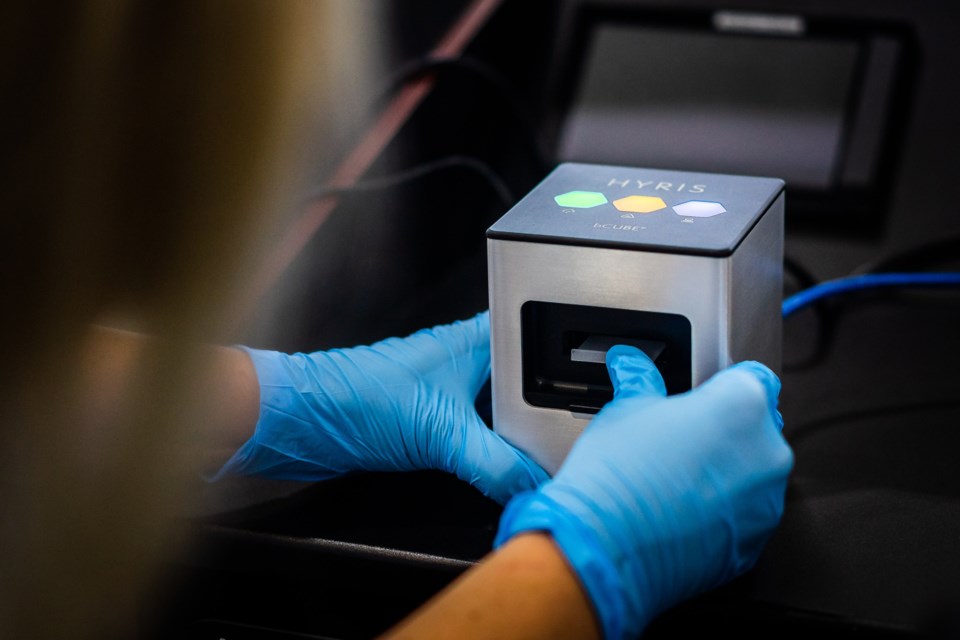GUELPH/WELLINGTON – Rapid testing instruments for COVID-19 have a huge benefit to rural communities according to a University of Guelph professor.
Steven Newmaster, a genomics professor, works on identifying different organisms, including viruses, in small devices at a lab in the university.
He was part of a team that validated the Hyris bCUBE, a portable DNA-testing laboratory that can test for COVID-19 in 90 minutes.
Health Canada has approved it for human testing.
The bCUBE will be distributed by Guelph-based company Songbird Life Science, where Newmaster is also a science advisor.
Newmaster said devices like this can help rural communities with small hospitals because test samples need to be sent out and this can eliminate that travel time.
“They may not, and many don’t, have molecular diagnostic equipment to be able to do genetic testing on site,” Newmaster said. “It’s very expensive to be able to set up those labs in small hospitals.”
Newmaster explained that small portable instruments can be run at the small hospitals and gives a quick result as opposed to waiting five days or more for sent samples.
“It would take the backlog out of those main testing sites, those clinical labs because we’re able to test now in smaller labs and rural hospitals,” Newmaster said.
Public Health Ontario has asked Songbird Life Science to distribute and train on the bCUBE.
Newmaster said he sees the data collection possibility of these devices as almost a step above what the major clinical labs.
One of the benefits Newmaster of the bCUBE highlighted is how they are connected to the cloud and saved data is uploaded as soon as it hits a cell or wifi signal.
This data can then be analyzed by a health care professional or researcher.
“You’d be able to see all these remote locations, say small hospitals, and see the number of tests and the number of negatives and positives,” Newmaster said.
“As a geneticist, there’s a lot of genetic data in that test. I’d be able to look at that genetic data and look at the very ability of that data, model it and look for patterns.”



